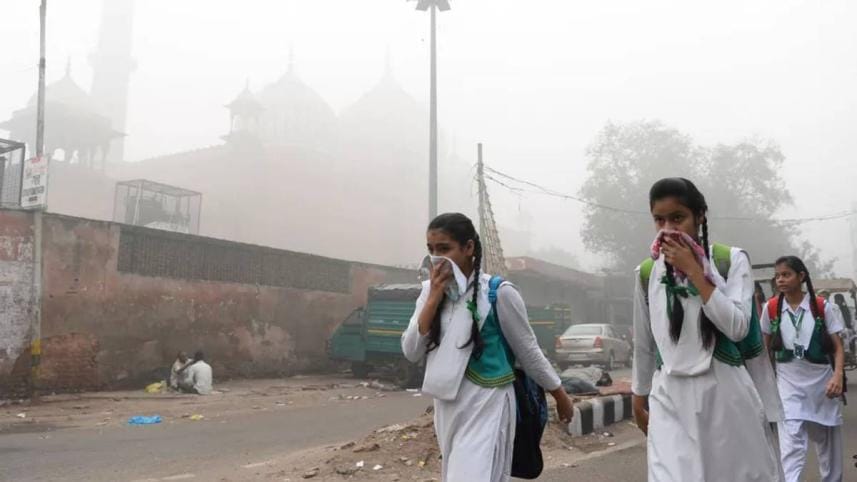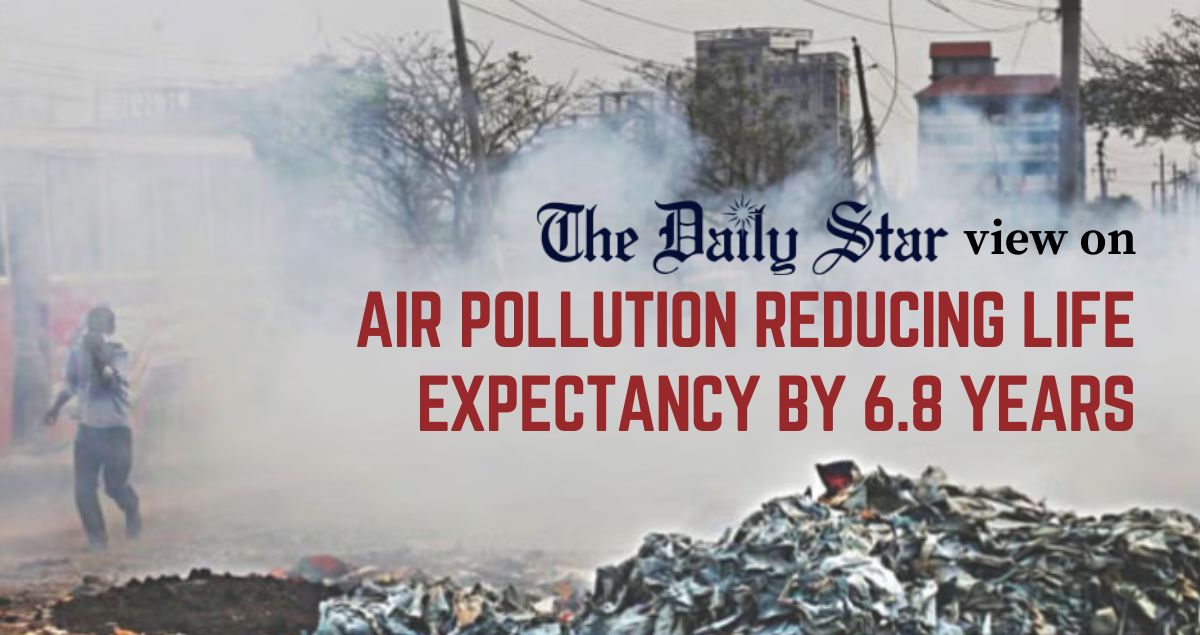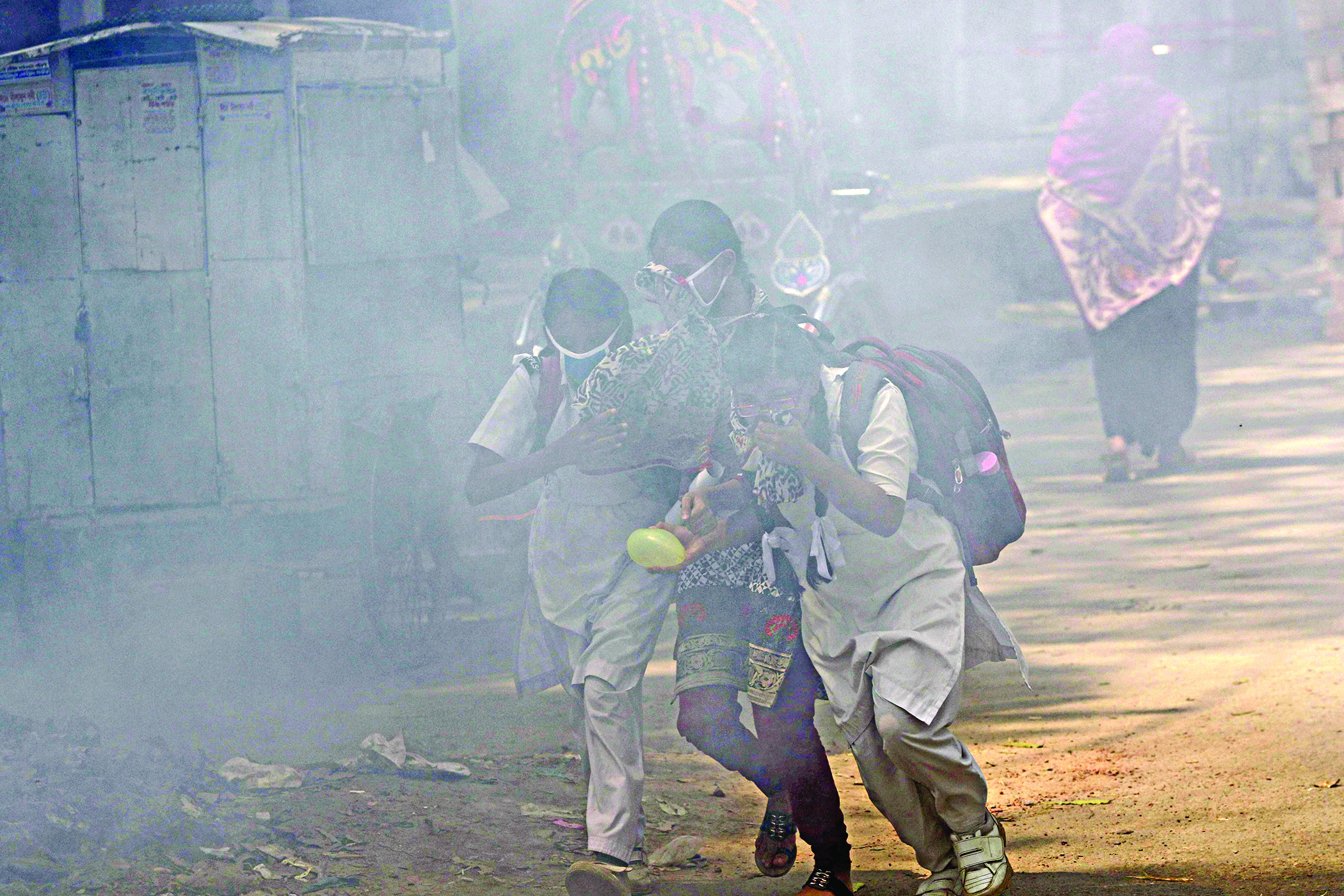How academics can help combat air pollution

Can we think of a realm where seven million lives tragically come to an end each year, victims of an unnoticeable adversary hidden in every breath we take? It does not only happen in science fiction; now, it is a grim reality. These millions are facing the health risks induced by air pollution, and this demands our prompt attention. In the persistent fight against the dangers of contaminants in the air, it is evident that apathy is not a viable alternative. Recent research by the Clean Air Fund reveals that global development funding for air quality accounted for only 0.7 percent of total international development funding from 2015 to 2021.
Although Bangladesh receives substantial funding to combat air pollution, it continues to struggle with this invisible threat. Local and international institutions have issued reports highlighting the devastating effects of climate change and air pollution on the country's citizens. Bangladesh often ranks as the fifth-most air-polluted nation globally; Dhaka reached the top among the global megacities. The surge or mismanagement in the transportation industry is directly linked to escalating pollution levels, with both light and heavy vehicles spewing exhaust fumes and soot particles.
Sadly, more than 90 percent of children and more than half of the world's population breathe toxic air, as stated by UN agencies. This highlights the significance of our development partners emphasising the health and safety of Bangladesh's citizens, particularly the country's children, the most vulnerable group. While we have made substantial progress in education, capacity buildup, and the development of infrastructure and road networks, we now need help fighting indoor and outdoor air pollution. Indoor air is relatively heavier and dirtier compared to outdoor reported by numerous research in the literature. To prevent repeating past errors, for example, the arsenic problem in Bangladesh during the 1990s, we must employ a science-based advantageous approach for a long-term mitigation goal.
But should academics lead the way in this endeavour?
The key is to bridge the gap between intent and action, which is essential here in order to solve the problem. Our complex problems necessitate scientific or nature-based sustainable solutions, which essentially signifies that academia and industry must work together by bringing together their respective talents and resources. Many problems arise from air pollution, but academics have the expertise to develop solutions. They work with experts in environmental science, people's health, green energy, and policy to ensure our strategies are thorough, supported by evidence, and prepared to handle even the most challenging issues. Effective environmental policy relies on the research, analysis, and critical thinking provided by academic institutions in an ever-changing environmental setting. Industry collaboration, which uses research to boost long-term viability and create greener technology, supports these initiatives and promotes them to the root in the community.
Making the institutes a centre for generating ideas or prototype technology is a timely move. This convergence may stimulate new approaches to reducing air pollution in Bangladesh. Innovative and sustainable solutions for controlling air pollution may be developed with help from many fields of study and professionals. Knowledge, study, and competence in the relevant subject are required to understand the fundamental causes, which is necessary to develop comprehensive and successful solutions. If we all work together, we can cut pollution levels dramatically by eliminating the root causes of it. If governments, communities, stakeholders, and specialists work together to reduce air pollution, it may also instil in people a lifelong respect for the natural world in any country. Together, we can solve the problem and improve Earth's health and sustainability for future generations.
It is time for Bangladesh to address the damage that air pollution has caused. By reevaluating funding priorities and emphasising scientific research-based solutions, we can pave the way for clearer air, improved lives, and a sustainable future for the next generations. To restore and regenerate Bangladesh, science is our guiding light.
Dr Md Firoz Khan is associate professor of environmental science and management at North South University (NSU), former visiting professor at China University of Mining and Technology, and former assistant professor at the University of Malaya in Malaysia.
Sabikunnesa Sayma is an undergraduate student at North South University (NSU).
Views expressed in this article are the author's own.
Follow The Daily Star Opinion Facebook for the latest opinions, commentaries and analyses by experts and professionals. To contribute your article or letter to The Daily Star Opinion, see our guidelines for submission.



 For all latest news, follow The Daily Star's Google News channel.
For all latest news, follow The Daily Star's Google News channel. 


Comments